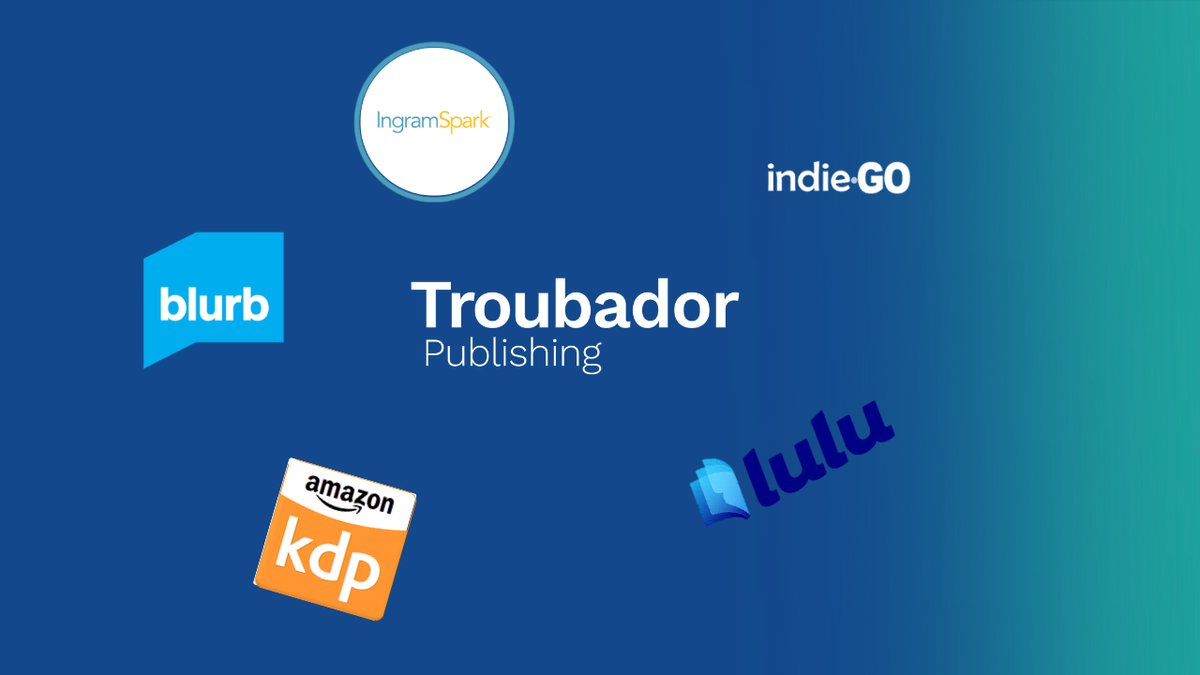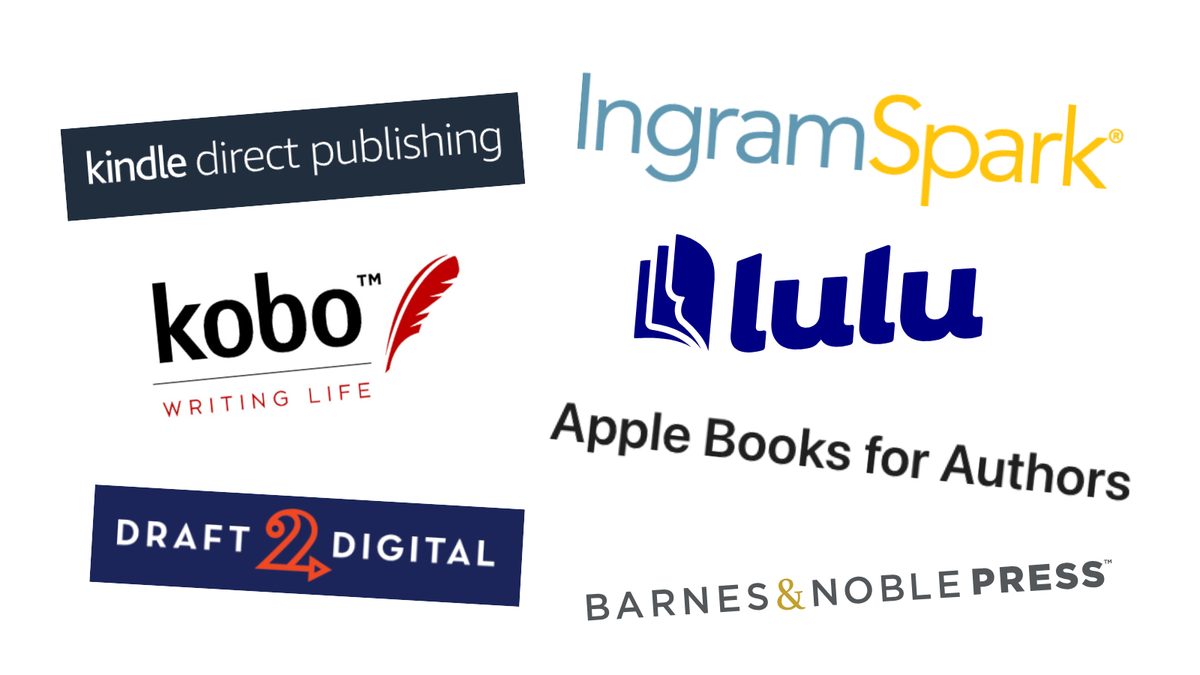
12th November, 2024
9 min read
10 Mistakes New Authors Make When Self-Publishing (And How to Avoid Them)
Written by:
Alex Thompson
Self-publishing offers authors an incredible sense of empowerment. Authors get the freedom to control every step of the publishing process, from content to cover design to marketing and more. For many, this path is an appealing alternative to traditional publishing, allowing writers to bring their vision to life on their own terms.
However, first-time authors often find self-publishing comes with its own set of challenges, with some of those challenges leading to mistakes. With so many details to manage, it’s easy to overlook key steps that can make or break a book’s success. In this article I have highlighted the most common mistakes the Troubador team sees new authors make and offer some actionable tips to help them avoid these pitfalls, setting them on the path to a rewarding self-publishing journey.
1. Skipping Professional Editing
One of the most common mistakes new authors make is skipping professional editing, often due to the cost that is incurred or an underestimation of its impact. Professional editing is crucial because it brings a fresh, objective perspective to the manuscript, catching errors and inconsistencies that the author may have missed. A polished, error-free book is far more likely to resonate with readers and receive positive reviews, helping it stand out in a competitive market.
Hiring a professional editor can seem costly, but it’s a valuable long-term investment in the book’s quality and reputation. For authors on a budget, there are more affordable options, such as hiring freelance editors or enlisting beta readers for initial feedback. Some authors also use online platforms where they can find editors at varying price points, while others can access high-quality editorial work by working with a full-service self-publishing company like Troubador.
Whether through professional editing or quality feedback from experienced readers, every manuscript benefits from a thorough, objective review.
2. Poor Book Design
Many new authors underestimate the importance of professional book design, often focusing solely on the cover without considering text layout, typesetting, and the full cover (front, spine, and back). However, each design element plays a critical role in making a strong first impression, especially in bookshops or online listings where readers make quick, visual decisions. A well-designed cover can instantly communicate genre, tone, and quality, drawing readers in, while a clean, readable text layout enhances the reading experience.
Authors without design experience should seriously consider hiring a professional book designer, as self-made covers can often look unpolished or amateurish. Many options are available at different price points, from freelance designers and design agencies to online design platforms with templates tailored for books. Again, a full-service provider like Troubador will be able to assist with the full suite of book design requirements too. Investing in a high-quality design helps authors make a compelling impression, giving their book a better chance of being the first one a reader picks up.
3. Inadequate Formatting
Inadequate formatting is a critical mistake many self-published authors make, leading to books that are visually unappealing or difficult to read. Poor formatting affects both the design and the technical aspects of a book. For ebooks, it’s not just about aesthetic appeal, it’s about ensuring compliance with accessibility laws and best practices, like making sure text is readable across devices and meeting platform guidelines. Improper formatting can result in issues like broken links, inconsistent fonts, or poor navigation, frustrating readers.
For print books, formatting is equally important to ensure that the layout is clean and professional, fitting properly on the page and aligning with printing standards. While platforms like Amazon KDP provide basic formatting tools, achieving a polished, professional result often requires outside help. Authors should consider hiring a professional or using specialised software to ensure their book is formatted correctly for both digital and print formats, meeting industry standards and providing a great reader experience.
4. Overlooking Marketing Efforts
Many new authors make the mistake of assuming that once their book is written, readers will naturally find it. This "If I write it, they will come" mentality often leads to missed opportunities. Launching a book without a pre-launch marketing strategy means missing out on the chance to build anticipation and generate buzz before release.
Marketing is essential for success. Authors could start by creating excitement through social media, engaging potential readers with teasers, sneak peeks, or behind-the-scenes content. Building an email list is another effective strategy, allowing authors to connect directly with their audience and share updates. Early reviews, whether from beta readers or influencers, can also help establish credibility and boost visibility on platforms like Amazon. Running paid advertising campaigns on Google and Facebook or digital marketing campaigns via NetGalley can give your book the visibility it needs to be noticed over other titles in the same genre. By prioritising marketing before and after the launch of the book, authors can ensure a strong debut and a sustained, growing readership.
5. Underestimating the Importance of Metadata
While I have placed this mistake fifth on the list, it is probably the mistake most commonly made by new authors. The creation and quality of a book’s metadata is fundamental to it being discovered and, therefore, being purchased.
To optimise metadata, authors should conduct thorough keyword research to identify terms that potential readers are likely to search for. Tools like Amazon’s Best Seller Rank can help guide this process, revealing which keywords are effective for a book's genre or niche. Additionally, selecting the right categories ensures the book is placed in relevant, high-traffic areas where readers are more likely to find it. However, this is likely going to be a step too far for money authors self-publishing their book, and so help should be sought for any authors unsure of what they are doing. Properly leveraging metadata can significantly boost a book’s visibility, leading to increased sales and audience engagement. Neglecting to think about it will result in your book falling by the wayside and not fulfilling its sales potential.
6. Setting Unrealistic Expectations
Self-publishing a book does not guarantee instant success, or even success in the long term. We are always incredibly honest with our authors that while we are very good at getting books stocked in bookshops, discovered online and purchased by the book trade, we cannot force them all to buy the books. The desire to be the next bestseller often leads to inflated expectations, but unfortunately, this is the exception rather than the rule. Self-publishing success rarely happens overnight and often requires a combination of time, effort, persistence and quite a lot of luck!
Instead of focusing on immediate success, authors should set realistic, manageable goals. These could include selling a set number of copies in the first month, gathering reviews, building a social media following or simply enjoying the experience. We can many authors that have decided that they aren't even that interested in sales - they might have a family history or children’s book they simply want to publish to get it out into the world.
Self-publishing success is a long-term game, and success means different things to every author. By viewing the self-publishing journey as a personal journey towards your own goals rather than a competition with other authors, authors can maintain motivation, learn from their experiences, and achieve sustainable success, whatever that means to them, over time.
7. Not Considering Distribution
How will your readers access your book? If a new author hasn’t asked themself this before they choose how they will publish their book, For eBooks, this is relatively straightforward: platforms like Amazon, Kobo, and Barnes & Noble make it easy for readers to access digital copies. But for authors who want their book available in print, the process is more complex. Print-on-demand (POD) offers global reach, but will typically mean lower royalty rates, and low print quality and books often blend into a crowded market of millions of other POD books.
Authors seeking to get their books into physical bookshops face additional hurdles. Most bookshops only stock titles from established publishers with trade relationships, be they traditional publishers or self-publishers like Troubador as independent POD books rarely meet retail standards. Authors need to research distribution options thoroughly as choosing the right route depends on their goals; those aiming for bookshop shelves should consider working with a publisher experienced in trade distribution to maximize their chances.
 8. Not Building an Author Brand Early
8. Not Building an Author Brand Early
Many new authors mistakenly believe that branding is only important after they've established themselves, but building an author brand well before publication can significantly impact long-term success. A strong author brand helps readers connect with the author’s personality, values, and style, creating a foundation for loyal readership even before the first book launches.
Authors should focus on establishing a consistent online presence through social media, an author website, and email newsletters. These channels are opportunities to showcase their voice and build relationships with potential readers. Defining a unique tone and message that resonates with their target audience is essential. Whether it be through sharing personal stories, behind-the-scenes writing updates, or engaging on topics related to their genre, by actively connecting with readers early on, authors can cultivate a community that supports each book release, increasing their chances of success and building a recognizable, lasting brand.
9. Rushing the Publishing Process
Many new authors feel pressure to publish quickly, worrying that delays might mean that the book loses momentum or audience interest. But rushing the process can create unnecessary stress, causing authors to skip important steps like proofreading, final edits, or design tweaks, which could impact the book’s quality.
Self-publishing doesn’t have to be a race. Taking a relaxed approach, or sourcing help to do the heavy lifting for you and guide you along the process, allows authors to focus on each stage without pressure, enjoying the creative process instead of rushing through it. Building in time for multiple rounds of revisions, cover design adjustments, and thoughtful marketing can make the journey more fulfilling – something we always build into the production process for all the titles we see through to publication from the beginning. Remember, there’s no deadline except the one you set—publishing is about quality, not speed. By allowing yourself to move at your own pace, you’ll likely enjoy the process more and feel more satisfied with the final result.
10. Not Enjoying The Process!
Self-publishing can be challenging, but it’s also a unique, creative journey – one that many new authors miss out on by focusing too heavily on deadlines and results. When authors get too caught up in anxieties over sales, reviews, and quick success, they often forget to appreciate the milestones along the way: completing the first draft, crafting a cover, or connecting with readers. Taking time to celebrate each step helps reduce stress and keeps motivation high.
In addition, help can be sought along the way to reduce the stress that an author endures and to outsource the stress to someone else! Troubadour helps hundreds of authors a year do this to ensure they enjoy their publishing journey as much as possible.
Remember, self-publishing a book is a huge accomplishment. Embracing the process, with its ups and downs, makes the journey far more rewarding.
Embrace the Mistakes
Self-publishing is a learning curve, and avoiding common pitfalls like skipping professional editing, neglecting marketing, rushing the process, and underestimating the importance of distribution and branding can make a huge difference. By being mindful of these challenges and taking a thoughtful approach, new authors set themselves up for a smoother path to success.
Remember, every seasoned author was once a beginner, and mistakes are simply part of the process. Embrace the journey and see each misstep as an opportunity to grow and refine your craft. With patience, persistence, and openness to learning, self-publishing can be an incredibly rewarding adventure.













